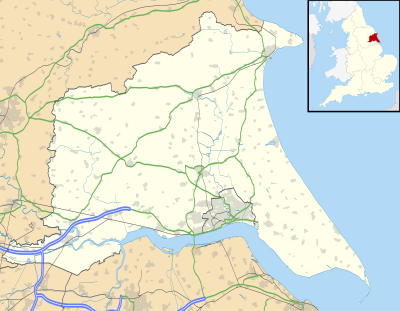Churches of the southern circuit
| Southern circuit | Key |
|---|---|
| BW = Bishop Wilton C = Cowlam F = Fridaythorpe Fi = Fimber GW = Garton on the Wolds K = Kirkburn NF = North Frodingham S = Sledmere T = Thixendale W = Wansford We = Wetwang |
These include: [2]
| Dedication | Location | Notes | OS Grid square | Image |
|---|---|---|---|---|
| St Elgin | North Frodingham | Restored in stages between 1877 and 1891 by the 5th Baronet. The top part of the Perpendicular tower was designed by Temple Moore. | TA101531 |  |
| St Mary | Sledmere | Built in 1893–8, to a design by Temple Moore, at a cost of £60,000. Stained glass by H.V. Milner and Burlison and Grylls. | SE930645 |  |
| St Mary | Cowlam | A small medieval church restored in 1852 to a design by Mary E Sykes, daughter of the 4th Baronet. | SE966655 |  |
| St Michael | Garton on the Wolds | Dates from around 1120 and was restored in 1856–7 with stained glass by Clayton and Bell to a design of J.L.Pearson. | SE982593 |  |
| St Mary | Kirkburn | A Norman church that was restored in 1856–7 when it had a porch added. | SE979550 |  |
| St Nicholas | Wetwang | Another church of Norman origin which was restored by both Baronets between 1845 and 1902. | SE930591 |  |
| St Mary | Fridaythorpe | Restored in 1902–3 with the addition of a new north aisle designed by C. Hodgson Fowler and stained glass by Burlison and Grylls | SE875591 |  |
| St Mary | Thixendale | One of a group of village buildings constructed to designs by G.E.Street in 1868–70. | SE841611 |  |
| St Mary | Fimber | Built in 1869–71 in a thirteenth-century style to replace a chapel of ease. | SE895605 |  |
| St Edith | Bishop Wilton | Faithfully restored in 1858–9 with lavish internal embellishment to designs of J.L.Pearson. | SE797552 |  |
| St Mary | Wansford | Newly built in 1866–8 to designs by G.E.Street. | TA061566 |  |








